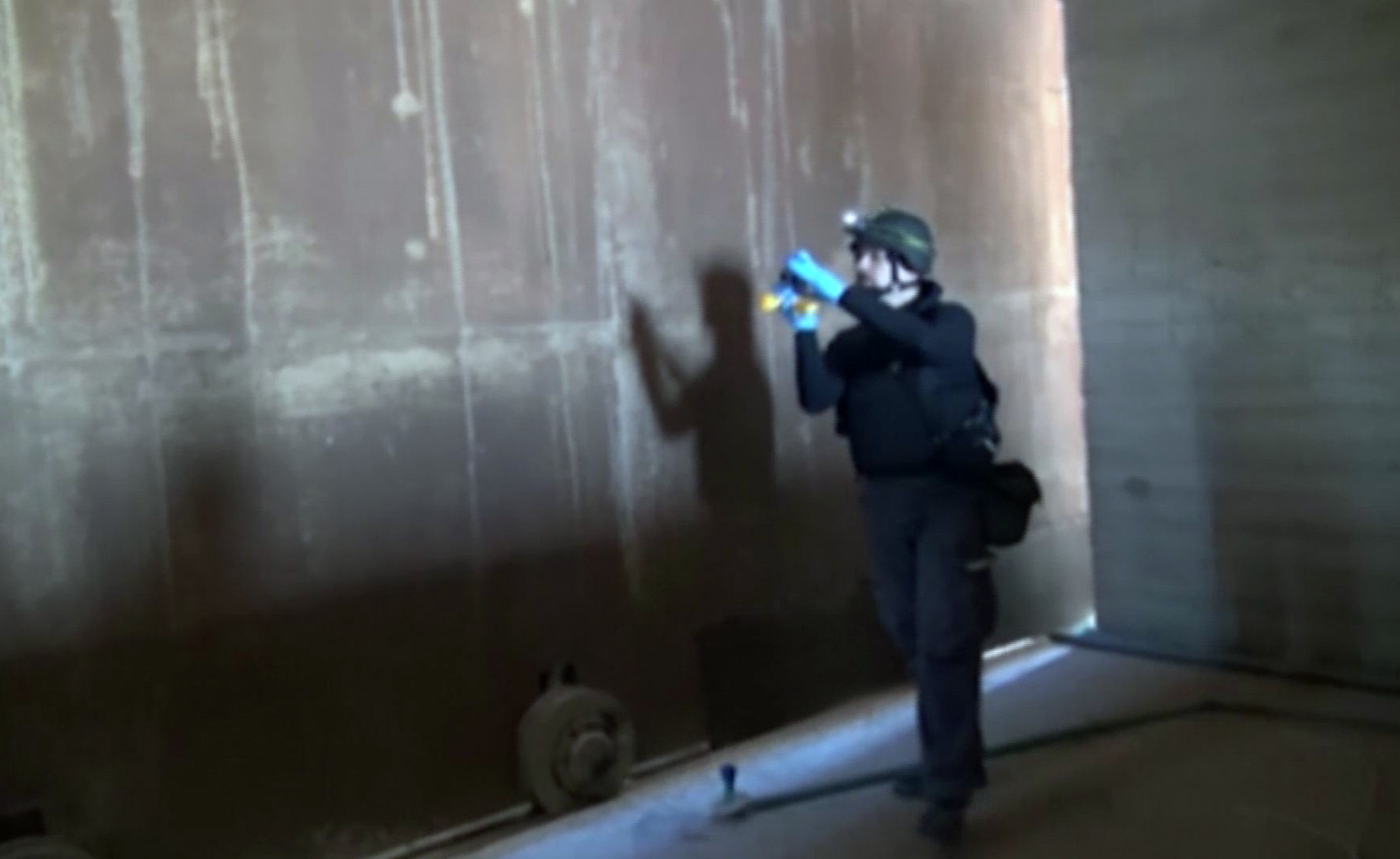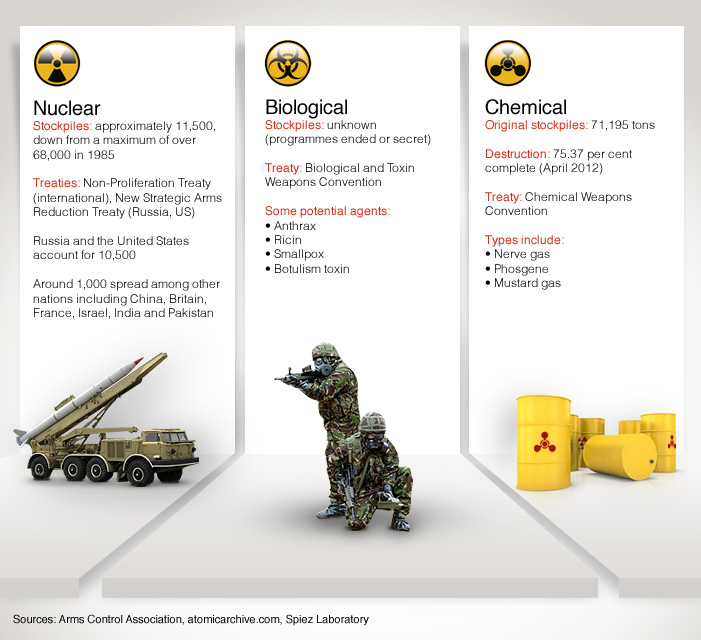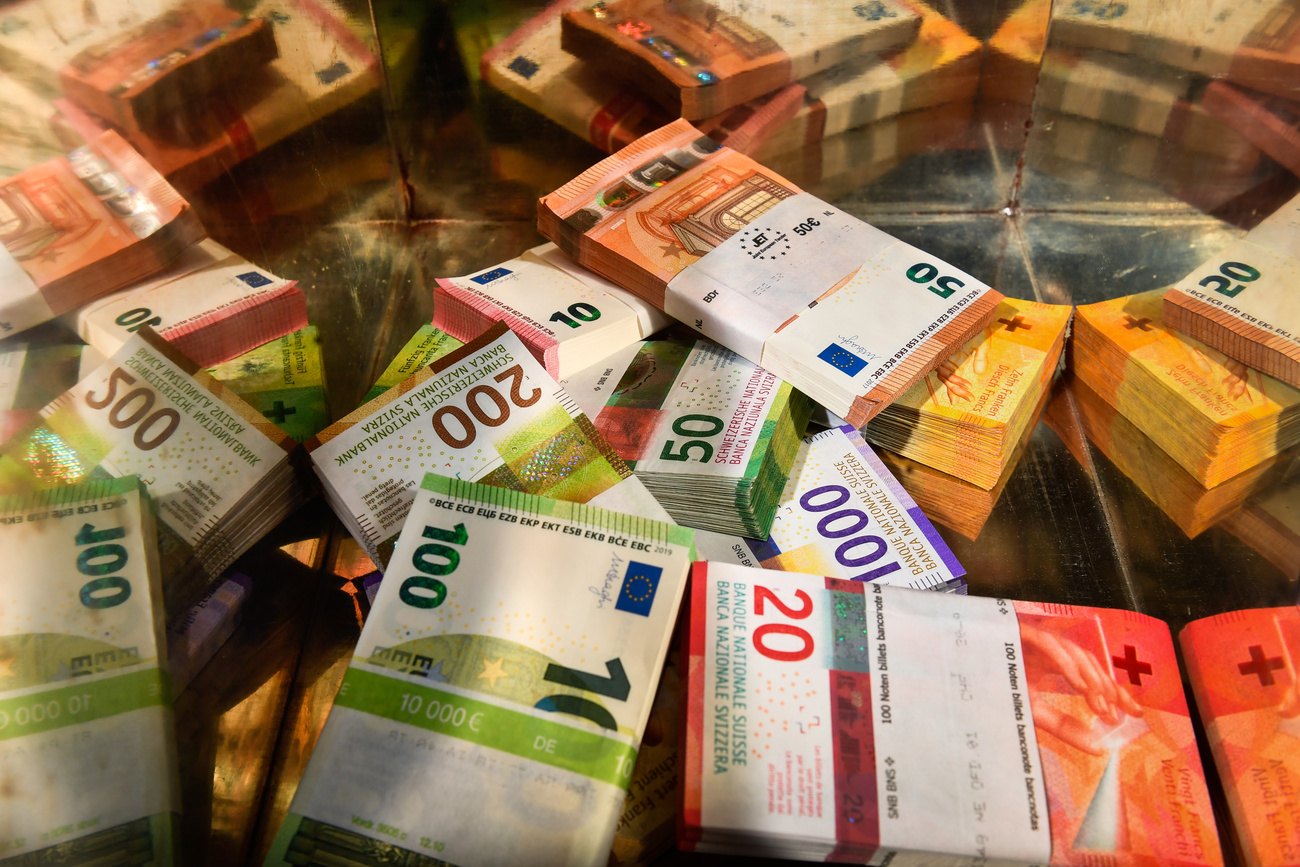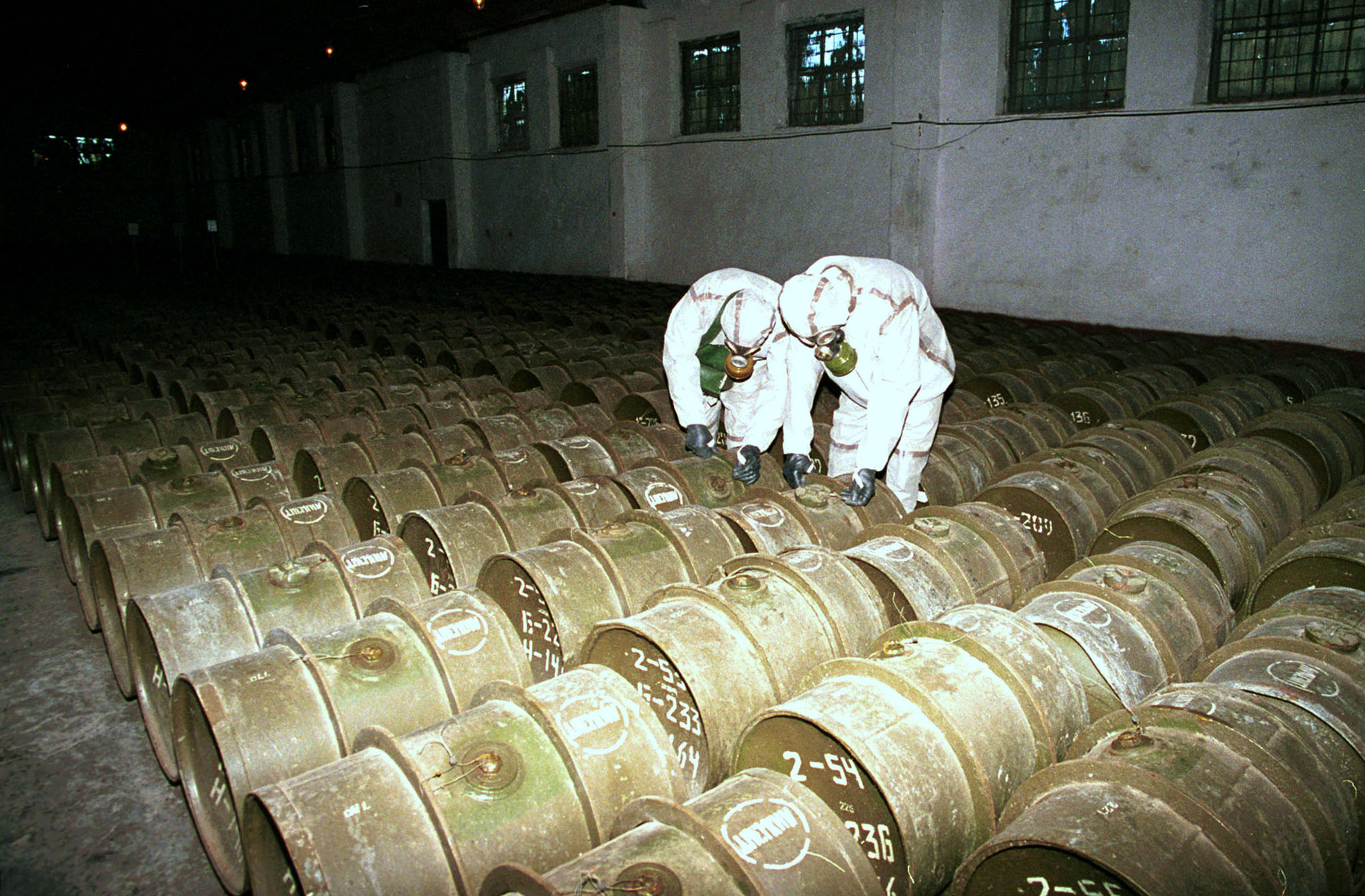Global chemical watchdog wins Nobel Peace Prize

The Organisation for the Prohibition of Chemical Weapons (OPCW) has been awarded this year’s Nobel Peace Prize “for its extensive efforts” to rid the world of such arsenals. The move was well deserved, Stefan Mogl, the Swiss former chair of the OPCW’s scientific advisory board, told swissinfo.ch.
“The conventions and the work of the OPCW have defined the use of chemical weapons as a taboo under international law,” the Norwegian Nobel committee said on Friday. “Recent events in Syria, where chemical weapons have again been put to use, have underlined the need to enhance the efforts to do away with such weapons.”
Based in The Hague, in the Netherlands, the OPCW was formed in 1997 to enforce the Chemical Weapons Convention, the first international treaty to outlaw an entire class of weapons. It prohibits the development, production, acquisition, stockpiling, retention, transfer or use of chemical weapons.
Mogl, who handed over the presidency of the scientific committee in June, said that he was “very positively surprised” by the award, which had gone to an organisation that had been very active since 1997 but largely out of the public spotlight – until Syria.
“It is, in my view, the most important and comprehensive arms control and disarmament treaty: chemical weapons stockpiles have been and are being destroyed in large quantities and the treaty also strives to prevent the use of toxic chemicals as weapons for the future and the organisation also has undertaken lots of activities in that regard,” he said.
“It educates, it watches developments in science and technology, as well as inspects the chemical industry in its member states.”
The convention has been ratified by 189 states. Of those, seven – Albania, India, Iraq, Libya, Russia and the United States, along with a country identified by the OPCW only as “a State Party” but widely believed to be South Korea – have declared stockpiles of chemical weapons. These include mustard gas and nerve agents like sarin and VX.
Friday’s award comes three days before Syria officially joins and even as OPCW inspectors are on a risky United Nations-backed disarmament mission based in Damascus to verify and destroy President Bashar al-Assad’s arsenal of poison gas and nerve agents amid a raging civil war. Mogl called Syria’s joining of the convention “a very positive development”.

More
Weapon stockpiles at a glance
Swiss involvement
Mogl is head of the chemistry division at Switzerland’s specialised Spiez Laboratory, one of 21 OPCW-designated laboratories worldwide. It places at the OPCW’s disposal data records to support analyses of chemical substances and regularly organises training courses for OPCW inspectors.
Mogl, a former inspector himself, said in several media interviews that Switzerland had a high standing in the OPCW due to its expertise.
“Switzerland has strongly supported the OPCW, both technically and politically, from the beginning. It is significantly involved in its success.”
Praise for the OPCW’s award also came from Swiss Foreign Minister Didier Burkhalter, who told Swiss public radio that it was “a good choice”, that would help the international community get involved in Syria.
Switzerland works closely with the OPCW and has given CHF1 million ($1.1 million) towards the destruction of Syrian chemical weapons.
The Swiss-run International Committee of the Red Cross took to twitter to add its congratulations on the “worthy recognition of [the OPCW’s] long-term chemical weapons disarmament work”.
Inspections
The OPCW has conducted more than 5,000 inspections in 86 countries. It says 100 per cent of the declared chemical weapons stockpiles have been inventoried and verified.
According to its statistics, 57,740 metric tons, or 81.1 per cent, of the world’s declared stockpile of chemical agents have been verifiably destroyed.
Albania, India and what is thought to be South Korea have completed destruction of their declared stockpiles. An OPCW report released earlier this year said the US had destroyed about 90 per cent of its stockpile, Russia had destroyed 70 per cent and Libya 51 per cent.
Thirteen OPCW members have also declared a total of 70 chemical weapons production facilities. The organisation says all 70 have been taken out of commission including 43 destroyed altogether and 21 converted to peaceful purposes.
The OPCW is funded by its member states and in 2011 had a budget of €74 million (CHF91 million). It employs some 500 people in The Hague. The director-general is Turkish diplomat Ahmet Uzumcu.
The peace prize was the last of the original Nobel Prizes to be announced for this year. The winners of the economics award will be announced on Monday.
(With input from Isobel Leybold-Johnson)

In compliance with the JTI standards
More: SWI swissinfo.ch certified by the Journalism Trust Initiative












You can find an overview of ongoing debates with our journalists here . Please join us!
If you want to start a conversation about a topic raised in this article or want to report factual errors, email us at english@swissinfo.ch.